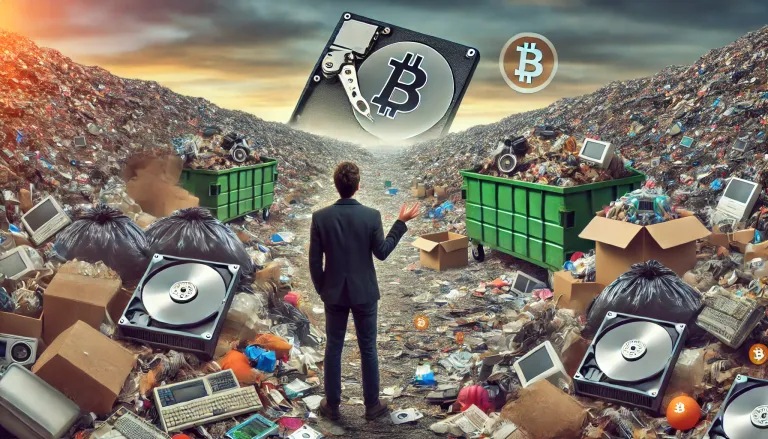
In 2013, James Howells, an IT worker from Newport, Wales, accidentally threw away an old hard disk that held 8,000 bitcoins. At the time, bitcoin was still in its early stages and worth only a fraction of its current value. Fast forward to today, that hard disk represents a fortune of hundreds of millions of dollars, lying buried in a landfill.
A Costly Mistake
Howells had mined the bitcoins in 2009 when the cryptocurrency was practically worthless. As he cleaned out his home, the hard drive containing the private key needed to access the bitcoins was mistaken for trash and discarded. By the time he realized his error, it was too late; the drive had already been sent to a local landfill.
The Search Efforts
Over the years, Howells has tried everything to recover his lost fortune. He’s offered a percentage of the treasure to the local council in exchange for permission to dig through the landfill, but his requests have been denied due to environmental concerns and the logistical challenges of locating the drive. The landfill is massive, with waste stacked several meters deep, and the cost of excavation could run into millions.
A Modern Tragedy
This story resonates as a modern cautionary tale about the importance of safeguarding digital assets. The irony is palpable: a small, seemingly insignificant object, tossed away without thought, has grown to represent a life-altering fortune.
Lessons Learned
The saga of James Howells underscores the volatile nature of cryptocurrency and the critical importance of securing access to your digital wallets. As cryptocurrencies continue to grow in popularity, the need for proper management and backup of private keys is more important than ever.
Is the hard drive still intact under the layers of trash? Could its data be recovered if found? These questions remain unanswered, adding to the mystique of the lost bitcoins.
Would you dig through a landfill for a fortune?
Posted Using InLeo Alpha